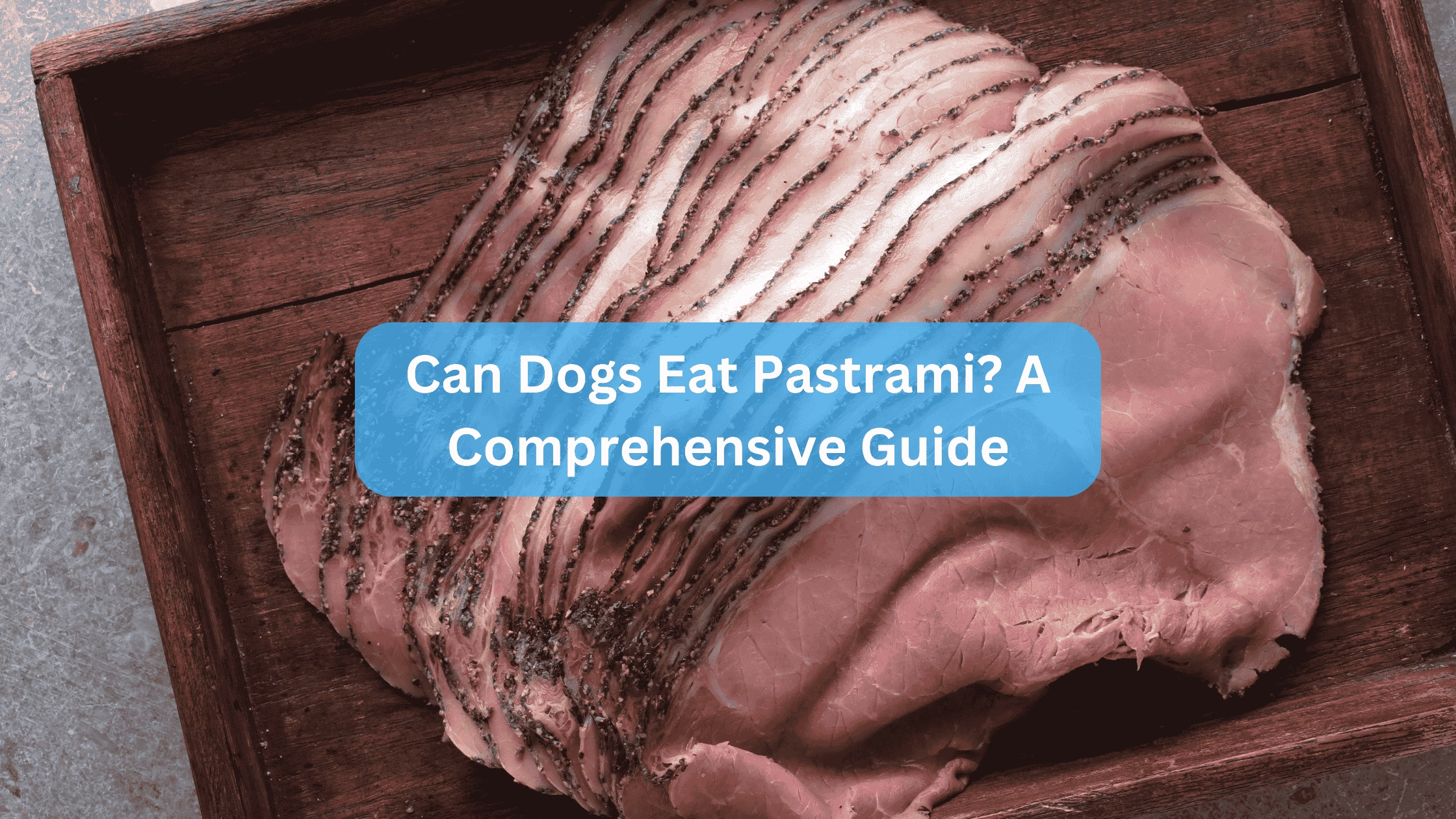When it comes to sharing our meals with our furry friends, many dog owners find themselves asking, “Can dogs eat pastrami?”
This question is not just about whether it’s safe; it encompasses understanding the nutritional implications, potential health risks, and best practices for feeding our pets.
In this guide, we will explore everything you need to know about pastrami and its suitability for dogs.
Understanding Pastrami
Pastrami is a type of cured meat, typically made from beef that has been brined, seasoned with various spices, and then smoked.
While it is a popular deli meat enjoyed by many humans, it contains several ingredients that can pose health risks to dogs.
Nutritional Composition of Pastrami
Pastrami is rich in protein but also high in sodium and fat. Here’s a breakdown of its key components:
- Protein: Essential for muscle development and overall health.
- Sodium: High levels can lead to dehydration and other health issues.
- Fat: Excessive fat can cause gastrointestinal upset and contribute to obesity.
Why Pastrami Is Not Ideal for Dogs
While the protein content may seem appealing, the risks associated with pastrami far outweigh the benefits when it comes to canine consumption.
High Salt Content
Pastrami is brined in a saltwater solution, making it extremely high in sodium. Dogs are particularly sensitive to salt; excessive intake can lead to:
- Dehydration: Dogs may drink more water than usual to compensate for the salt.
- Sodium Ion Poisoning: Symptoms include vomiting, diarrhea, tremors, and seizures in severe cases.
Toxic Ingredients
Many commercial pastrami products contain garlic and onion powder—both of which are toxic to dogs. These ingredients can cause:
- Gastrointestinal Upset: Symptoms may include vomiting and diarrhea.
- Anemia: Garlic and onions can damage red blood cells over time.
High Fat Content
The fat content in pastrami can be problematic as well. Issues include:
- Pancreatitis: Inflammation of the pancreas caused by high-fat foods can lead to severe abdominal pain and other complications.
- Obesity: Regular consumption of high-fat foods can contribute to weight gain, which poses additional health risks.
What Are the Long-Term Health Risks of Dogs Eating Pastrami Regularly?
Feeding your dog pastrami regularly can lead to several long-term health issues:
- Obesity: Due to its high-fat content, regular consumption can lead to weight gain and associated health problems like diabetes and joint issues.
- Pancreatitis: Chronic inflammation of the pancreas can occur from frequent intake of fatty foods, leading to severe digestive problems.
- Heart Disease: High sodium levels can contribute to hypertension (high blood pressure) and other cardiovascular issues.
What Should You Do If Your Dog Accidentally Eats Pastrami?
If your dog has consumed a small amount of pastrami, there’s no need for immediate panic. However, monitoring their condition is crucial. Here’s what you should do:
- Observe for Symptoms: Watch for signs such as vomiting, diarrhea, lethargy, or excessive thirst.
- Consult Your Veterinarian: If your dog shows any concerning symptoms or if they have consumed a large quantity of pastrami, contact your vet for guidance.
- Hydration: Ensure your dog has access to fresh water to help flush out excess sodium.
How Can I Tell If My Dog Has Eaten Pastrami?
Identifying if your dog has consumed pastrami involves observing their behavior and physical condition. Look for:
- Changes in Behavior: Increased thirst or unusual lethargy may indicate salt poisoning.
- Gastrointestinal Symptoms: Vomiting or diarrhea could suggest an upset stomach due to the fat or sodium content.
If you suspect your dog has eaten pastrami, especially in larger amounts, it’s best to consult with your veterinarian promptly.
Are There Any Safe Alternatives to Pastrami That Dogs Can Eat?
Instead of sharing processed meats like pastrami with your dog, consider healthier options that are safe and nutritious:
- Plain Cooked Chicken or Turkey: Skinless and unseasoned meats are excellent protein sources.
- Lean Cuts of Beef: Small amounts of unseasoned beef can be a tasty treat.
- Vegetables: Carrots, green beans, and sweet potatoes are healthy snacks that many dogs enjoy.
These alternatives provide essential nutrients without the harmful effects associated with processed meats like pastrami.
How Does the Fat Content in Pastrami Affect Dogs Differently Than Humans?
Dogs metabolize fats differently than humans do. While humans can often handle higher fat diets without immediate consequences, dogs are more susceptible to the negative effects of high-fat foods. Here’s how:
- Digestive Issues: Dogs may experience gastrointestinal upset more readily than humans when consuming fatty foods like pastrami.
- Risk of Pancreatitis: The risk of pancreatitis is significantly higher in dogs due to their unique digestive systems. Even small amounts of high-fat foods can trigger this painful condition.
Also Read: Can Dogs Eat Coconut? A Comprehensive Guide
Also Read: Can Dogs Eat Dill? A Comprehensive Guide
Conclusion: Can Dogs Eat Pastrami?
In summary, while dogs may occasionally eat small amounts of pastrami without immediate harm, it is not advisable due to its high salt content, potential toxic ingredients like garlic and onion, and excessive fat levels.
Instead, focus on providing healthier alternatives that meet your dog’s dietary needs without compromising their health.
By being mindful of what you share with your furry friend, you can ensure they live a happy and healthy life.
Always consult with your veterinarian if you have any concerns about your dog’s diet or health conditions.
Sources:







